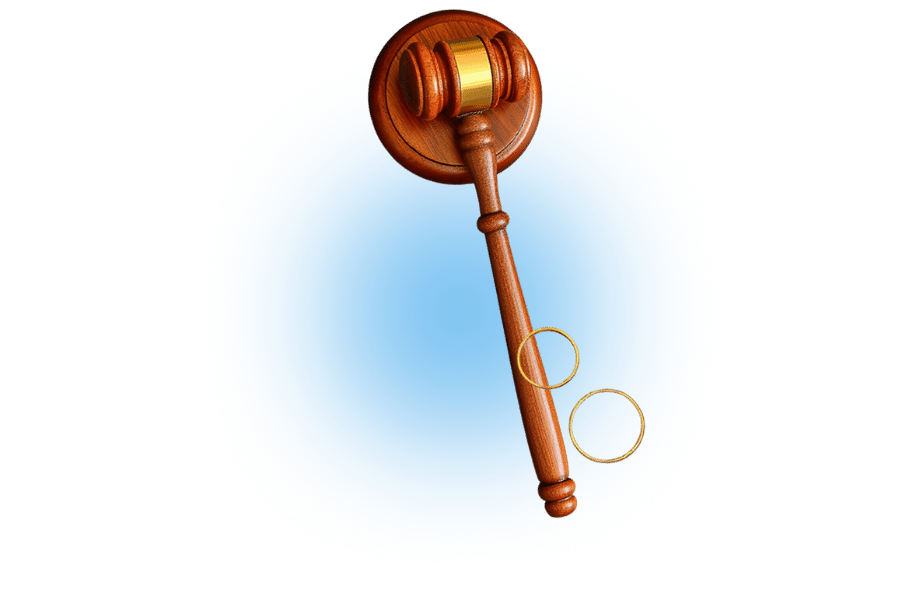Divorce Investigation Services: Find Digital Evidence You Need!
Work with a proven team of experts who have handled these cases before and know how to get the proof you need to successfully navigate a divorce settlement.
Call Us: (888) 201-0599Get Help Now!
Considering a Divorce or Already in Divorce Proceedings?
Divorce cases are the epitome of your word against theirs. In our digital age, the evidence to support your claims is often embedded in cybercommunications and online interactions. Digital evidence speaks louder than words, and our experts can help you retrieve and preserve this deciding data.

Digital Data Can Determine Your Divorce Case
Digital evidence can reveal hidden activities and help lead to fair settlements, but it’s often tricky to uncover. It may be embedded within the code of shared attachments. You might need access to messages that have been deleted from a device. This data would be difficult — if not impossible — to recover alone. Luckily, our team knows exactly how to retrieve and preserve the evidence you need.
- We identify devices used and content shared to determine the scope of investigation.
- We are capable of retrieving data from both physical devices and cloud storage.
- Our analysts are certified, so you can trust your evidence will be handled properly.
- Our reports are thorough and maintain the chain of custody to ensure their admissibility.
Using Cyber Forensics to Uncover the Truth
Text Messages
Texts can be unsent, and entire conversations can be deleted. However, these messages are typically stored after deletion, whether on the device or within the provider’s network. We’ll work to recover this data for you.
Digital Media
Visual content may display certain behaviors that could change the outcome of your settlement. Sometimes, the evidence isn’t what’s depicted in the frame, but the metadata on the back end. We can help you recover digital media and analyze its contents.
Audio Files
Recordings can contain verbal conversations that include details of certain transgressions. Deleted voice mail messages may portray an abusive or harassing relationship. We can help you retrieve this data to determine what was said and by whom.
Activity History
We can analyze data such as browsing, transaction, and location history to paint a broader picture of your partner’s habits. This data can help indicate behavior that can help you build your case and reach a successful settlement.
SMS and MMS
Videos and Pictures
Audio Files, Voice-Mails
Calendar Information

Call History
Browsing History
GPS Locations
E-mails
FAQ
How Can Computer Forensics Help My Divorce Case?
Computer forensics can uncover evidence that can make all the difference in a divorce settlement. Investigators can retrieve data that proves wrong-doing, such as abuse, infidelity, hidden assets, and lifestyle choices that may come into play for family law and custody battles.
What Digital Evidence is Admissible in Court?
As long as it is verified, relevant to the case, and not considered hearsay, any digital record can be used as evidence. This includes texts, calls, emails, and social media posts. This is why it’s so critical that evidence is collected, documented, and presented in the appropriate manner. To avoid manipulation, cybersecurity experts conduct device imaging to ensure the data remains intact.
Can I Access My Spouse’s Devices?
If the device belongs solely to your spouse, you will need consent to access its content. Legal protections prevent unauthorized access to digital communications of others, and evidence you collect this way will not be admissible.
However, if the device is jointly owned and data retrieved is not protected by your spouse’s credentials, you do not need their approval to conduct a forensic investigation. Furthermore, you may be able to request a court-ordered subpoena.
You can learn more in our article covering how to prove infidelity in ordinance with the law.
What if My Spouse Deleted Digital Evidence?
Even when data is deleted off a device, it is often still recoverable. Service providers can be subpoenaed to provide message and call history, even if it’s been deleted off the device. Furthermore, deleted content often remains on operating systems until written over. Working with professional cyber investigators can allow you to recover this data.
Why Can I Trust Your Service?
We’ve seen numerous cases just like yours, and we’ve been able to help our clients get the evidence they need to support their case. We have over 200 reviews accumulating in a 4.94-star rating that you can check out to hear what our past clients think of our services.
Don’t Leave Your Divorce Settlement to Chance. Get Forensic Clarity Amidst the Chaos of Divorce with a Team You Can Trust.
Get Help Now

